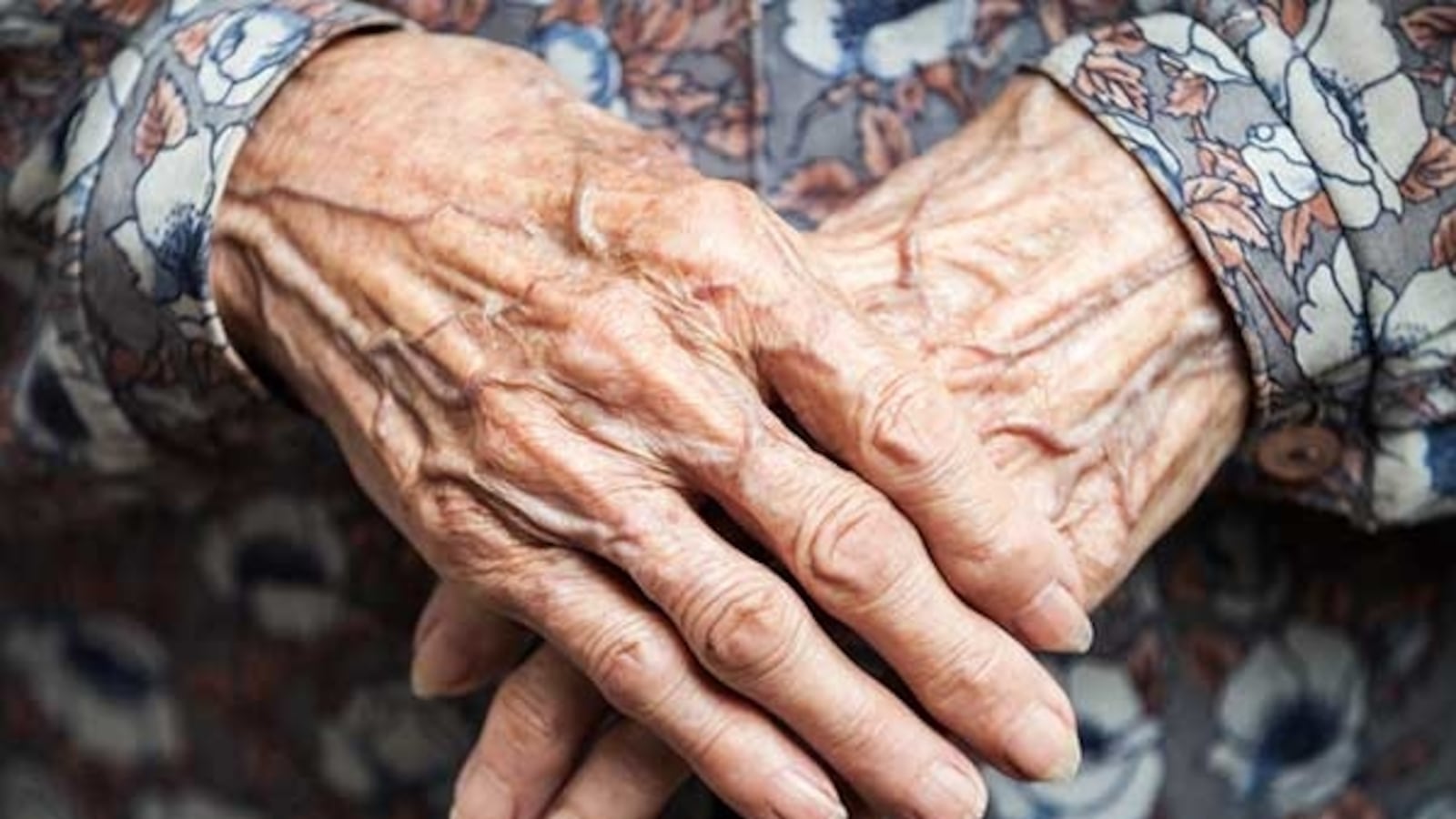How do you live to be 109 years old? Exercise, a nice warm bowl of porridge, and staying away from men—at least that’s the explanation given by Scotland’s oldest woman, Jessie Gallan, in a story that went viral earlier this year.
There’s something existentially fascinating about our life expectancy, and we love to comb stories from the oldest among us, trying to find hidden bits of wisdom. In the grand scheme of things, though, Gallan isn’t actually that old—she doesn’t even crack the top 50 verified oldest people alive right now—but I can’t think of many other centenarians or supercentenarians (people who have lived to be in their 100s and 110s, respectively) who have gotten quite so much media attention.
Based on the lifespans of modern hunter-gathers—specifically, groups that depend almost entirely on wild foods with little or no technological exposure or access to modern medicine—evolutionary anthropologists estimate that the earliest humans lived until about their mid 50s, provided they survived past childhood. Once you take into account child and infant mortality rates, the average lifespan of our earliest ancestors falls between two and three dozen years.
We’ve come a long way.
In Medieval Britain, any man in the aristocracy who survived to adulthood could expect to live until his 60s in the 1200s and 70s in the 1500s (since two-thirds of all children died before age 4 in Medieval Britain, the overall life expectancy hovered in the mid 30s). In the 20th century, things started to change more rapidly. With vaccines and novel treatments for once-life-threatening diseases, modern medicine let us grow into older age, but we saw the sharpest gains by steeply curbed infant mortality.

While the average life expectancy at the turn of 20th Century was in the 40s, now average life spans hover in the 70s or 80s, depending on where you are in the world. According to the World Health Organization, the typical woman in Japan, the country with the longest life expectancy in the world, now lives to be nearly 90. The U.S., ranking 36th in the world, has an average life expectancy of 79.8 years.
The oldest living person in the world is Japan’s Misao Okawa, who turned 118 this month. In her own interview with the Daily Mail, she had simple advice: “Eat and sleep and you will live a long time. You have to learn to relax.” While she had three children—her surviving son is 94 and her surviving daughter is 92—her husband died in 1931, providing a bit more anecdotal support for the men-will-actually-kill-you theory of longevity.
At 116, Gertrude Weaver is the oldest living person in the United States and second-oldest in the world. Weaver was born in Arkansas in 1898, and told the Associated Press her three factors for longevity: “Trusting in the Lord, hard work, and loving everybody.” She told Time that her secret was kindness. “Treat people right and be nice to other people the way you want them to be nice to you,” she said.
Some other supercentenarians have less conventional suggestions. Susannah Mushatt Jones was born in Alabama in 1899. She doesn’t smoke or drink but loves bacon and barbeque chicken, her niece told WABC-TV. Jerelean Talley, the second-oldest woman in the United States at 115, cites “do unto others” as the secret to her long life, and her son says eating pig ears and feet “kind of keeps her going.” Also born in 1899 is Italy’s oldest woman, Emma Morano. She told an Italian newspaper that she had lived so long because she never used drugs, drinks one glass of homemade brandy each morning, and eats three eggs—one raw—daily. Most importantly, she says, she thinks positively about the future.
Morano left her husband in the 30s, though they remained technically married until his death.
Taking all of these stories into account, it’s hard to figure out how to actually live longer. Never marry? Divorce young? Eat more eggs? Never drink? Or take a shot of brandy every morning? There seems to be too much noise to get any reliable advice.
The scientific data is a bit more helpful, but still limited. One of the oldest and most comprehensive study of centenarians comes from The New England Centenarian Study, led by Dr. Thomas Perls at Boston University. They’ve uncovered a few predictors for living to such old age: few centenarians smoke, they’re nearly all lean, they handle stress better, and they’re related to other centenarians.
The use of the word “predictors” is telling—an increase in ice cream sales might predict warmer temperatures, but they’re hardly causing them. In most cases, the best data we have comes from cohort studies, or what we call it when you follow people in two different groups and see what happens.
Cohort studies have their own issues though, and their data often conflict. This is why health recommendations seem to change so often, and it’s proven to be a problem for epidemiologists and other scientists interested in studying disease, longevity, and how we can be healthier. At best, cohort studies can provide carefully controlled observations, but such studies leave the door wide open for alternate explanations.
One common effect, for example, is that men who marry women much younger than them live longer (and women who marry someone younger or older than them actually live shorter lives). Someone could look at this data and suggest that men who want to live longer should marry younger women in their old age. This isn’t necessarily true, though, because there could be many other explanations for this difference. Maybe men who marry younger women tend to be richer and able to afford better health care. A good cohort study would control for income—comparing rich men who marry young and rich men who don’t—but this still leaves other possibilities. It could be that men who age better are more attractive to younger women. If that’s what’s going on, marrying younger women wouldn’t make you age more slowly; it would only happen if you’re aging slowly already.
While cohort studies are often very sophisticated and provide plenty of helpful data, they’re still often of limited use when trying to make evidence-based decisions. To really figure out what’s going on, scientists need to conduct randomized control trials, the gold standard for scientific information. This proves difficult to do in real-world cases, though, because we can’t randomly assign one group of women to get married and the other half to stay single so we can see which group lives longer.
This leaves some uncomfortable uncertainty. Our best data only seems to give some of the picture at best, and may mislead us at worst. The current state of the literature, though, seems to suggest that there’s a large genetic component to living more than a century, and small things can increase our lifespan, like cutting back on meat and alcohol and exercising more. According to the New England Centenarian Study, the average American seems to have the genes to make it comfortably into their late 80s, provided they take care of themselves and are fortunate enough to avoid serious diseases. It’s unlikely you’ll live to your 100s,though, unless you’re related to someone who already has.
Knowing all this, it’s still hard not to feel the pull of charming old women imparting wisdom for a long life. With the science so fuzzy, it’s tempting to think they know something that we don’t, and maybe they do. At the very least, they embody something empowering—all women need to live a long life is some exercise, warm food, and the right genes. No men needed.






